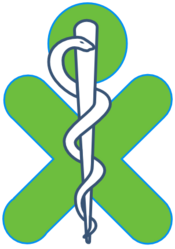Diseases of the Developing Countries: Difference between revisions
(add link HIV) |
No edit summary |
||
| Line 1: | Line 1: | ||
<noinclude>{{ GoogleTrans-en | es =show | bg =show | zh-CN =show | zh-TW =show | hr =show | cs =show | da =show | nl =show | fi =show | fr =show | de =show | el =show | hi =show | it =show | ja =show | ko =show | no =show | pl =show | pt =show | ro =show | ru =show | sv =show }}</noinclude>{{Health}} |
|||
{{Health}} |
|||
It is said that poor people afflicted with endemic diseases cannot afford to live. However, it turns out that education alone could save at least half of the lives now lost, by preventing infection in the first place. |
It is said that poor people afflicted with endemic diseases cannot afford to live. However, it turns out that education alone could save at least half of the lives now lost, by preventing infection in the first place. |
||
Latest revision as of 06:16, 30 June 2008
Translate this page with Google -español -български -中文(中国大陆) -中文(臺灣) -hrvatski -čeština -dansk -Nederlands -suomi -français -Deutsch -Ελληνικά -हिन्दी -italiano -日本語 -한국어 -norsk -polski -português -română -русский -svenska
It is said that poor people afflicted with endemic diseases cannot afford to live. However, it turns out that education alone could save at least half of the lives now lost, by preventing infection in the first place.
Diseases
- HIV/AIDS
- Malaria
- Tuberculosis
- River Blindness
- Deficiency Diseases
- Leprosy
- Leishmaniasis
- Sickle-Cell Anemia
- Cholera
- Yellow Fever
etc. See Wikipedia article on Tropical Diseases.
Public Health Measures
- Education
- Combating Social Stigma
- ABC program
- Abstinence
- Be faithful
- Condoms
- Condom distribution
- Prenatal care
- Water
- Nutrition
Access to Medicines
- Patent reform
- Pressure on pharmaceutical companies
- Research on Neglected Diseases
Health Economics
Basic health care for the world in combination with the OLPC program could pay for itself in increased productivity. The ROI on basic public health measures taken early in the 20th century was astonishing. Basically, curing one disabled patient gets that patient back to productive work, and releases someone who was taking care of that person for more productive work. Of course, in purely financial terms, there are interventions that will individually not get paid back in this way. But they are not as common as health economists at the World Health Organization have thought.
For example, until recently WHO recommended not treating multiple-drug-resistant tuberculosis (MDR TB) because it was thought to be too expensive, with too low a success rate. After Partners in Health (PIH) organized a successful trial of a new method for delivering care to MDR TB patients, at much lower cost and with a much higher success rate, WHO reversed itself and now recommends treatment for all MDR TB patients. It remains true that First-World medicine cannot be cost-effective in developing countries, but to say that nothing can be done is simply a failure of imagination. Imagination is a quality that Dr. Paul Farmer, founder of PIH, has in great measure, along with a refusal to accept failure.
